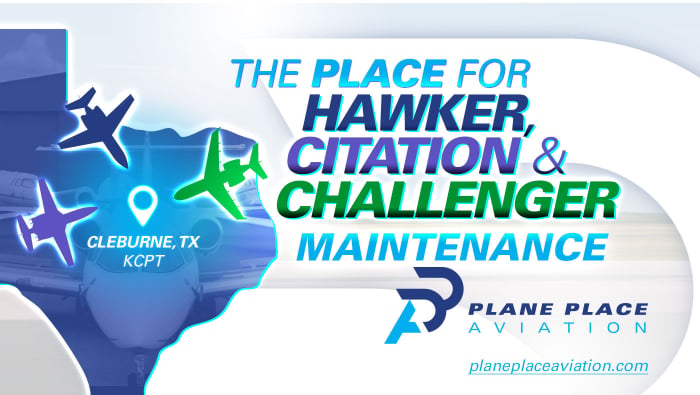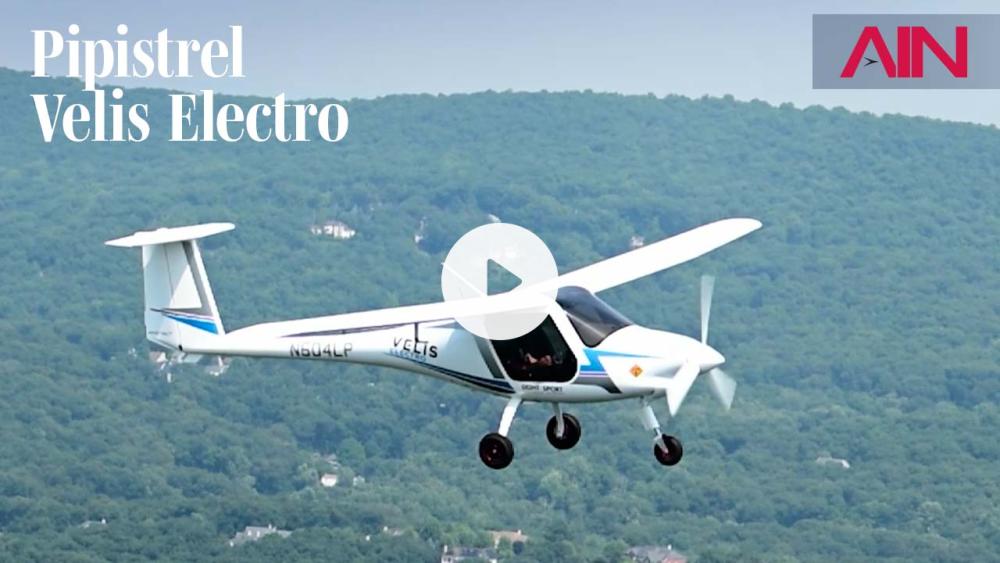|
U.S. Department of Transportation (DOT) and FAA officials met with industry stakeholders this week as they shape their plans for moving expeditiously forward with a modernized air traffic control system. The FAA has issued a request for information on a potential integrator to play a central role in that modernization effort, with a contract award anticipated by the end of September. Modernization of the system and a ramped-up air traffic control hiring process have become urgent priorities at both the FAA and DOT, and lawmakers in the House and Senate have proposed an additional $12.5 billion to be set aside for those efforts. While the funding has been included in each chamber’s Republican-led budget reconciliation bill, it has universal support from both sides of the aisle on Capitol Hill. Plans call to replace the core infrastructure, including radar, software, hardware, and telecommunications networks, with the integrator managing the acquisition and deployment of the new technologies. As a first step, leaders gathered this week to discuss innovative ideas, new technologies, and new procurement strategies. NBAA, among the participants, praised the gathering. “To move forward on transformation with urgency will require new thinking on processes and milestones, with input from all end-users,” said NBAA president and CEO Ed Bolen. “This gathering marks a powerful step forward for building a brand-new air traffic control system.” |
|
|
Signature Aviation—the world’s largest FBO operator—has signed a joint venture agreement with Italy-based advanced air mobility (AAM) infrastructure specialist UrbanV to accelerate the development of vertiports in the U.S. “This joint venture agreement is a major step in the development of AAM infrastructure for the United States,” explained Carlo Tursi, UrbanV’s CEO. “We have the ambition to become a major global operator of vertiport networks, and we will pioneer the establishment of some of the first AAM routes.” With an initial focus on Florida, New York, California, and Texas, the collaboration will attempt to establish the economic and technical feasibility framework for a scalable AAM network in those markets and beyond. Studies will assess factors such as demand potential, network planning, infrastructure feasibility, and financial modeling. Once concluded, Signature will integrate vertiports into its network of 200-plus locations and drive regulatory discussions. In addition, the joint venture will engage with additional potential vertiport sites and with AAM operators to form strategic partnerships with a goal of furthering AAM adoption and expansion. “Our partnership with UrbanV elevates our commitment to sustainability, innovation, and most importantly, our guests,” said Signature CEO Tony Lefebvre. “As we bring together our expertise, resources, and strategy, we’re focused on driving the adoption of advanced air mobility, while also establishing the safe, seamless, and efficient infrastructure needed for the development of vertiports.” |
|
|
Business aviation fees at Australia’s capital airport (YSSY) will rise sharply starting next month. But, according to OpsGroup, the silver lining is that opposition from ExecuJet—the primary FBO at YSSY—and the Australian Business Aviation Association has prompted the Sydney airport authority to institute lower rate hikes than originally planned. Regarding parking fees, operators will receive three hours of free parking in the designated business aviation area. After that time, fees will be assessed based on aircraft weight and duration of stay. This replaces the initially proposed flat fee of AUD3,220 a day (about 2,100 USD). For aircraft weighing more than 40,000 kilograms (88,200 pounds), pricing starts at $1,000 per day for the first three days, with stepped increases to $2,500 daily after one week. That is a steep rise from the current $280 a day for aircraft in that class. Smaller aircraft will be charged less, starting at $500 a day. The airport runway fee will also climb to a minimum of $340, with the per-1,000-kilograms mtow fee moving from $6.91 to $17. Sydney Airport will now mandate the use of ground power units and preconditioned air where available, with operators assessed a fee of up to AUD21.74 whether they use them or not. The authority also instituted environmental spill penalty fees of $300 for unreported fuel spills or $150 if self-reported. |
|
|
A recent report from the International Air Transport Association (IATA) predicts worldwide unblended sustainable aviation fuel (SAF) production will top 2 million tonnes (660 million gallons) this year. That still equates to less than 1% of the airlines’ total fuel consumption for the year. “While it is encouraging that SAF production is expected to double to 2 million tonnes in 2025, that is just 0.7% of aviation’s total fuel needs,” said IATA director general Willie Walsh, adding that even that minuscule amount will add $4.4 billion to customers’ fuel cost. “The pace of progress in ramping up production and gaining efficiencies to reduce costs must accelerate.” The report noted that most SAF is now being directed to Europe, which saw the widespread introduction of SAF use mandates at the beginning of the year. In response to the imposed mandates and associated compliance fees, IATA stated that the cost of SAF to air carriers there has doubled, making it up to five times more costly than jet-A. “This highlights the problem with the implementation of mandates before there are sufficient conditions and before safeguards are in place against unreasonable market practices that raise the cost of decarbonization,” said Walsh. “Europe needs to realize that its approach is not working and find another way.” |
|
|
The FAA has published a notice of national policy establishing an interim action plan on the use and limits of generative artificial intelligence (GAI) by agency personnel and contractors. This interim notice discusses GAI in terms of cybersecurity, accountability, intellectual property rights, and safeguarding information. The aim is to ensure that its use is “conducted in an ethical and responsible manner.” For the purpose of this notice, the FAA defines AI as a “machine-based system that can, for a given set of human-defined objectives, make predictions, recommendations, or decisions influencing real or virtual environments.” Artificial intelligence systems use machine- and human-based inputs to “perceive real and virtual environments; abstract such perceptions into models through analysis in an automated manner; and use model inference to formulate options for information or action.” Generative AI means “the class of AI models that emulate the structure and characteristics of input data in order to generate derived synthetic content. This can include images, videos, audio, text, and other digital content.” Agency personnel must not use GAI to perform or facilitate illegal or malicious activities; cite it as direct evidence or authority for a determination/decision; use it to contravene or circumvent any requirement, guidance, order, policy, notice, or standard operating procedure that otherwise applies; or abuse, harm, interfere with, or disrupt FAA activities or services, among others. |
|
|
X-1 Jets has announced the launch of an exclusive JetCard program designed for U.S. citizens planning travel within Europe this summer. The offering provides a premium private aviation solution with flexible access to top-tier aircraft and personalized travel schedules across the continent. The JetCard comes in three tiers—6.25, 12.5, and 25 flight hours—and allows travelers to fly at their own pace. With just seven days’ notice required for booking and no blackout dates or routing restrictions, the program is positioned as one of the most flexible in the market. Flights are operated on the Phenom 300 or a comparable light jet, with capacity for up to eight passengers. The JetCard supports a wide range of travel styles, from leisure vacations to business trips, and is tailored for families, small groups, or individual travelers seeking a seamless experience. “Last summer, our clients enjoyed effortless flights from Mykonos to Ibiza and Saint-Tropez to Costa Smeralda,” said Benjamin Lehmann, CEO of X-1 Jets. “This JetCard delivers that same freedom again—private, flexible, and fully concierge-supported.” The program is available for use throughout Europe between May and September 2025. All services are backed by X-1 Jets’ concierge team, ensuring stress-free travel with full attention to comfort and detail. |
|
|
The Air Line Pilots Association (ALPA) commended the U.S. House Transportation and Infrastructure Committee for advancing the Mental Health in Aviation Act (H.R.2591) introduced in April by Reps. Sean Casten (D-Illinois) and Pete Stauber (R-Minnesota). The legislation requires the FAA to revise regulations to better serve pilots, air traffic controllers, and other aviation workers who disclose mental health diagnoses or conditions. This act “represents a crucial step forward in improving aviation safety and maintaining a healthy work environment for pilots, and we appreciate Reps. Casten and Stauber for their bipartisan leadership,” said ALPA president Jason Ambrosi. “By implementing the Mental Health Aviation Rulemaking Committee’s recommendations, improving the special issuance process, and providing resources for additional aviation medical examiners, this bill acknowledges that a pilot’s psychological well-being is just as important as their physical health.” Current regulations create a “punitive culture that forces pilots and controllers to risk their livelihoods by seeking professional help,” said ALPA. “This outdated approach not only harms individual aviators but undermines the very safety standards U.S. aviation is built upon.” H.R.2591 will “help destigmatize mental health issues in aviation and advance aviation safety by improving the FAA’s medical review system and encouraging more pilots and controllers to seek care when needed,” it concluded. |
 |
SUSTAINABILITY QUESTION OF THE WEEKWhere in the atmosphere do contrails most typically form?
|
|
|
Attention Aviation International News subscribers: To ensure uninterrupted service please take a moment to renew your subscription today. If you are not a subscriber but would like to sign up, you can do so here. AIN is a monthly print and digital publication that provides in-depth features and news that cover the global business aviation industry, including aircraft manufacturing, operations, services, maintenance, technology, and the people who drive business aviation’s success. |
|
|
Pipistrel’s Velis Electro Is a Trailblazer for Electric Aviation Textron subsidiary Pipistrel is the first manufacturer that has certified an electric aircraft. The company’s president, Gabriel Massey, explained to AIN how the Velis Electro is changing flight training and other aspects of general aviation.
|
|
|
|
|
AINalerts News Tips/Feedback: News tips may be sent anonymously, but feedback must include name and contact info (we will withhold name on request). We reserve the right to edit correspondence for length, clarity, and grammar. Send feedback or news tips to AINalerts editor Chad Trautvetter. |
|
AINalerts is a publication of AIN Media Group, 214 Franklin Avenue, Midland Park, New Jersey. Copyright 2025. All rights reserved. Reproduction in whole or in part without permission is strictly prohibited. |















